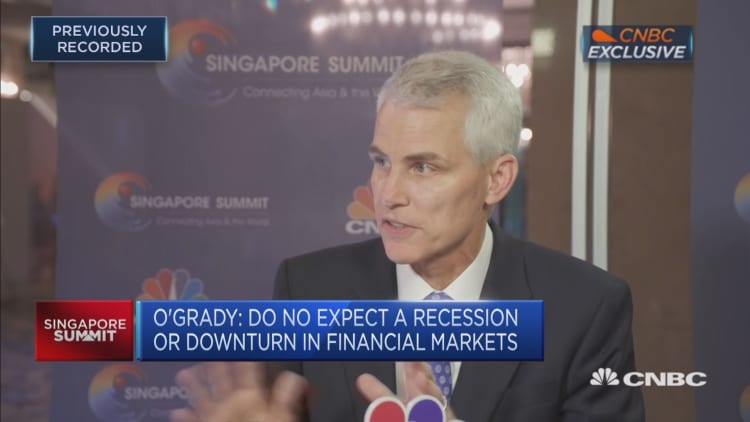
A decade after the 2008 financial crisis, the global economy is in a "delicate balance" that's at risk of getting tilted by a central bank misstep or unresolved trade dispute, according to financial services firm Northern Trust.
Recovery is still intact and inflation has been kept under control, but central banks need to maintain a balance, said Michael O'Grady, the CEO and president of Northern Trust at the annual Singapore Summit Friday.
Major central banks in the world have started to unwind massive stimulus that was put in place to boost the economy after the crisis. The Federal Reserve has increased interest rates and ended its bond-buying program, while the European Central Bank is expected to stop its quantitative easing initiative by end of this year.
The global economic conditions are favorable for such course of actions, O'Grady told CNBC's Amanda Drury.
"I think it's a delicate balance," O'Grady said. "Where the balance comes in is where the Fed and other central banks manage this unwind, and our concern would be if they get ahead of where the market is and ahead of where inflation is."
Trade is also helping to hold up that "balance" in the global economy, he said, adding that he wants to see the ongoing trade spat between the U.S. and its partners get resolved in a favorable way, even if they need some time to get there.
But overall, the U.S. financial system — the center of the crisis 10 years ago — is in "a dramatically better shape" now, said O'Grady. Efforts to strengthen the banks have resulted in better buffers to withstand risks, he noted.
"It's difficult to predict where the next crisis is coming from, so I think it is much more important to be prepared regardless of where it comes from," he said. "On that front, I think the system is in a dramatically better shape than it was before."


